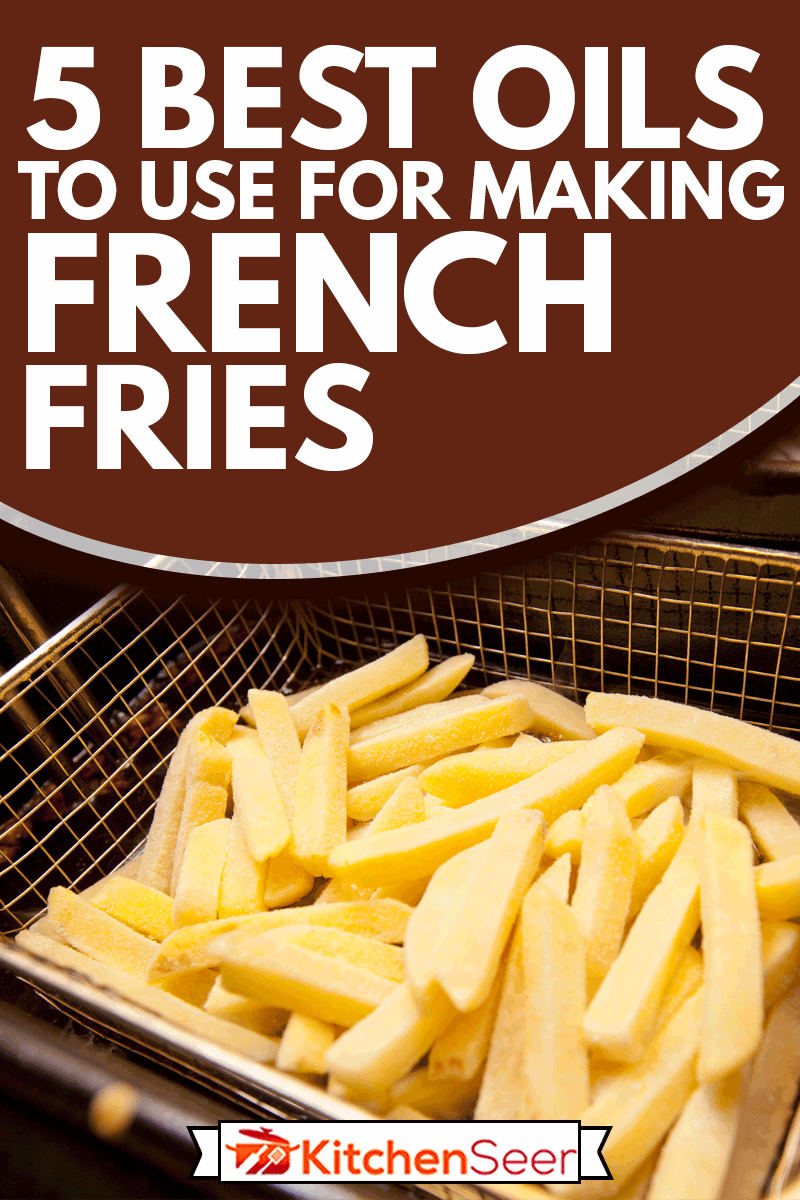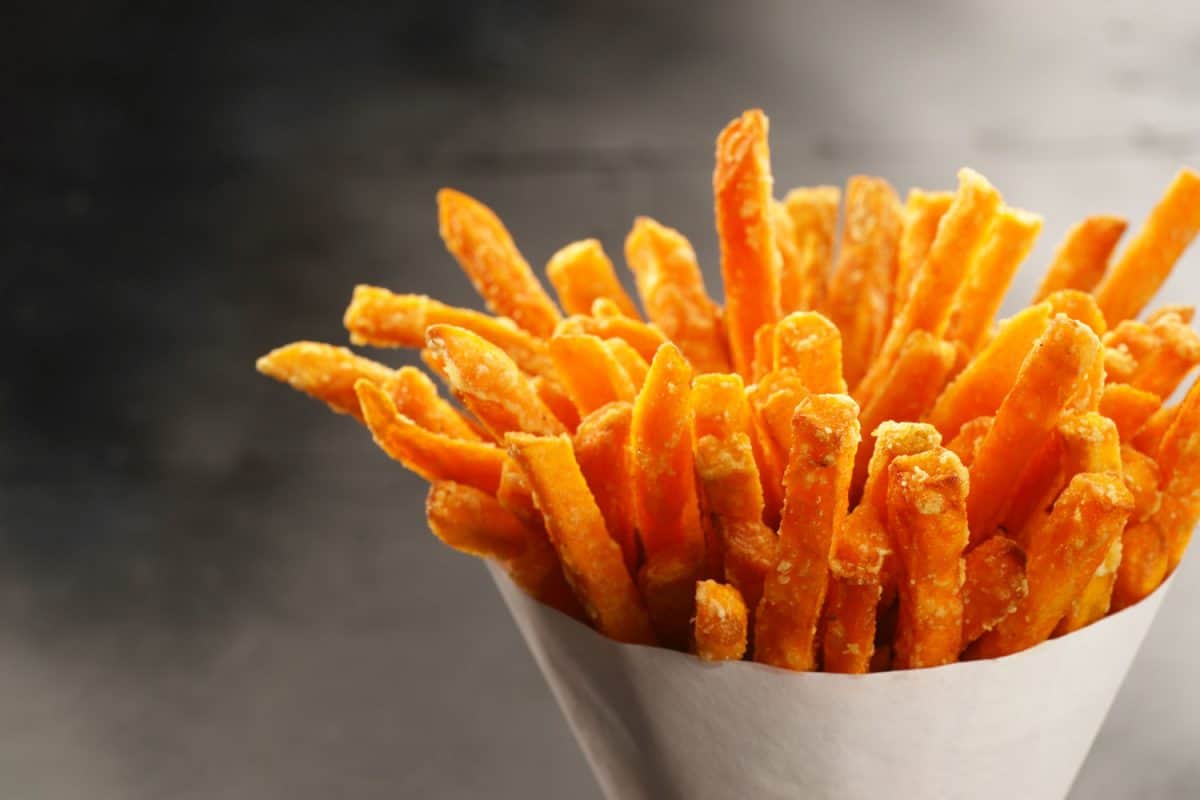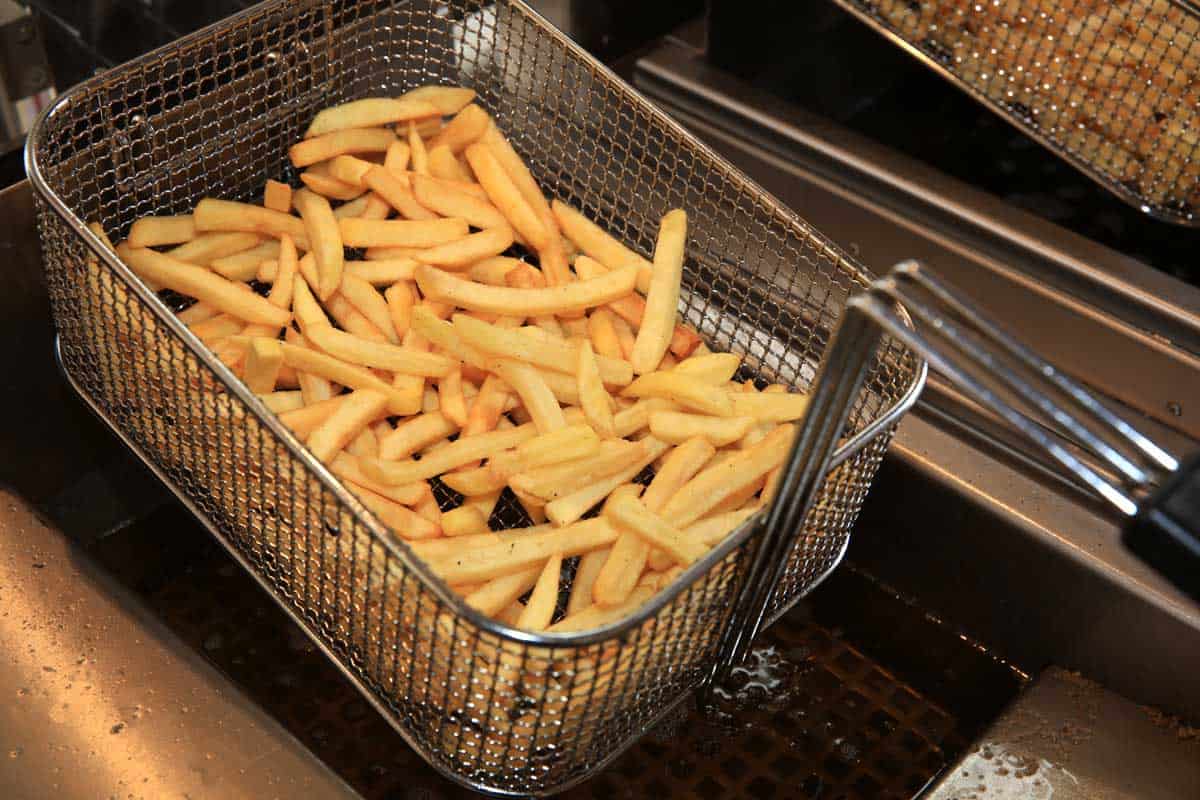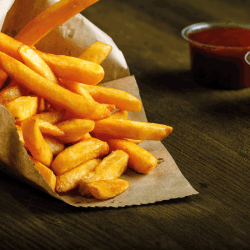If you are a foodie that enjoys potatoes, you probably like French fries. Maybe you are considering making your French fries at home and are wondering what type of oil to choose. Or how to select the best type of oil for ensuring crispiness? We've looked into these questions and have helpful answers to share with you!
There are several oils to choose from for frying French fries. Each option listed below provides a neutral flavor and a high smoke point:
- Corn oil
- Peanut oil
- Canola oil
- Rice bran oil
- Vegetable oil
Are you interested in learning about different types of oil for frying French fries at home? What are the differences between corn and peanut oils? Please continue reading to learn more about selecting the best option for your next batch of homemade French fries!

How to select the best type of oil for frying French fries
When selecting the best oil for your next batch of homemade French fries, there are a few important details to keep in mind. Firstly, the oil you choose should have a high smoke point to withstand the high temperatures of frying.
Secondly, choose a neutral-flavored oil that won't change the natural colors or flavors of the fries or affect the seasonings you may want to add after frying. Thirdly, consider using an economical oil, because frying, especially potatoes, will utilize a fair amount of oil.
![Frozen French fries in a frying pan, How To Blanch French Fries [And Should You?]](https://kitchenseer.com/wp-content/uploads/2021/09/Frozen-French-fries-in-a-frying-pan-1200x800.jpg)
The best five oil options for frying French fries
1. Corn Oil
For frying, purchase refined corn oil because it has a much higher smoke point than the unrefined version. Also, corn oil is a budget-friendly choice with a neutral flavor that won't change the natural flavors of the fries.
Word of caution — always store unopened corn oil in a dark cabinet or pantry; it can't tolerate light. Also, if you plan to reuse your corn oil, store it sealed in the refrigerator. Leaving it at room temperature will cause it to spoil.
Click here to view corn oil on Amazon.
2. Peanut Oil
Peanut oil is excellent for deep frying because it has a high smoke point that allows the fries to cook efficiently with nice crispy edges. Also, peanut oil does have a faintly nutty flavor that will not change the flavors or colors of the fries.
You could reuse the peanut oil for a future batch of fries, but don't wait too long. Peanut oil oxidizes quickly after the first usage.
Click here to view peanut oil on Amazon.
3. Canola Oil
Often, canola oil is the main ingredient in vegetable oil blends because it has a high smoke point and an undetectable flavor. This kitchen staple is great for adding crispiness to chicken and fries.
Beware, canola oil can only be used for frying once. Discard after the first use.
4. Rice Bran Oil
Rice bran oil has a very light flavor and a high smoke point which makes this oil excellent for frying French fries. Also, rice bran oil is rich in monounsaturated fats and is entirely free of trans fats.
Click here to view Riceland rice bran oil on Amazon.
5. Vegetable Oil
Generally, soybeans are the main ingredient in vegetable oils, which works well for frying French fries because it has a very high smoke point.
The majority of vegetable oils are relatively flavorless and will not impact the flavors of the fries. Also, this is the most budget-friendly option that is readily available in most supermarkets.
Click here to view Crisco vegetable oil on Amazon.
What oil makes things crispy?
Suppose crispiness is your main concern; consider frying with corn or vegetable oil to ensure crispness — both oils provide a high smoke point to allow the foods to fry evenly without burning.
Also, several factors contribute to a crispiness that is not directly connected to the type of oil. Firstly, the temperature of the oil will contribute to how quickly the foods will start to crisp. Oftentimes, cooks will start to fry the foods at a lower temperature and steadily increase it as the foods fry; this will help thoroughly cook the insides while providing enough time to crisp the outsides.

Suppose you are frying breaded fries or fish coated in breading that contains cornstarch. The cornstarch will add crispiness and help the breading and seasonings stick to the foods.
Another surprising factor that could affect the texture of your fried foods is when you remove them from the hot oil. Make sure to use tongs and place the foods on paper towels to absorb the excess oils.
If the oils are not allowed to drip from the foods immediately after removal from the hot oil pot, the foods will become soggy, regardless of the type of oil used.
What is the healthiest oil to fry French fries?
Healthline states the healthiest oil to fry with is coconut oil, which is high in saturated fatty acids that make it fairly resistant to high heat. Coconut oil has a unique flavor that will slightly change the colors and flavors of French fries. Although considered a heart-healthy oil, many are not fond of the taste when used for frying.
Are you interested in learning more about deep fryer options? Click here to read our article about the top ten deep fryers available at Walmart.
What oil does McDonald's use for French fries?
According to McDonald's, the restaurant uses a vegetable oil blend comprised of canola, corn, soybean, hydrogenated soybean oil, and natural beef flavor to fry French fries at the North American locations.

How do you drain oil from French fries?
Remove the fries with a slotted spoon or metal tongs. Never use plastic utensils; those will melt when in contact with hot oils.
Place two layers of clean, dry paper toweling on a cookie sheet and lay the fries single file, and don't stack the fries. If the fries are piled up, they will not drain, and they will get soggy quickly.
Also, if you don't have paper towels, you could set the French fries on a drying rack placed on a cookie sheet to catch the drips of oil.
Click here to view these cooling racks on Amazon.
What do you do with oil after French fries?
You've finished an outstanding dinner, and the cooled oil is sitting on the stove. You are wondering, "What do I do with this leftover oil?" Firstly, double-check to make sure it has fully cooled. Then, use a funnel to pour the cool oil back into the oil's original bottle and dispose of the bottle in the trash.
If you are planning to deep fry foods in the near future, filter the oil and save it for next time. Place a coffee filter inside the funnel to strain bits of debris out of the oil. Tightly close the bottle's cap and place the remaining oil in the pantry or refrigerator for storage. Depending on the type of oil used, the best storage method could vary.
Never pour oil down the kitchen drain! It will clog your pipes!
Additional thoughts
There are several precautions one should take when frying with oils at home. Cooking with hot oils can be dangerous if the proper precautions are not taken seriously.
Follow these guidelines to reduce the risk of personal injury or property damage.
- Only use oils with a high smoke point
- Use a large and sturdy pan
- Only use pots or pans with a lid, in case you need to cover the oil while cooking
- Always check the temperature of the oil
- Never put wet foods into the hot oil or fryer — wet foods will not cook properly and will sputter violently when in contact with hot oils
- Never leave a pan of hot oil unattended
- Always turn the pot or panhandles away from the front of the stove
- Don't allow children or pets in the kitchen while you are frying
- Only use a slotted spoon or metal tongs to remove foods from the hot oils
- Always wait for the oil to fully cool before removing it from the pan
In closing

French fries are a delicious treat for friends and family to gather for a few laughs and share a tasty meal. Often life's most memorable moments occur when sharing meals with loved ones! We hope this article helped you gain knowledge regarding the oil options for frying French fries. Please visit kitchenseer.com soon for more relevant and informative content!
Please, be sure to check out some of our other posts to help further your culinary knowledge base:
How To Cut French Fries With A Food Processor
How To Make Extra Crispy French Fries [And Keep Them That Way]
7 Best Potato French Fry Cutters








![A bowl filled with fresh french fries, How Big Is A Serving Of French Fries? [And How Many Fries Are In One?]](https://kitchenseer.com/wp-content/uploads/2021/09/A-bowl-filled-with-fresh-french-fries-250x250.jpg)
![Bown with fresh cooked french fries potato chips with belgian mayonnaise sauce close up - How Much French Fries Per Person? [And How To Make Them Healthier]](https://kitchenseer.com/wp-content/uploads/2022/05/Bown-with-fresh-cooked-french-fries-potato-chips-with-belgian-mayonnaise-sauce-close-up-250x250.jpg)


![Grilled tenderloin with French fries and salad, How To Grill French Fries [Inc. 11 Must-Try Recipes]](https://kitchenseer.com/wp-content/uploads/2021/09/Grilled-tenderloin-with-French-fries-and-salad-250x250.jpg)